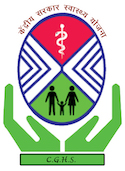-
October 8th, 2019Parts of Ashtanga Yoga
Detachment (Pratyahara) The fifth limb of yoga is sense-related. Pratyahara is the practice of withdrawing the senses from everything that stimulates them. Normally, we live by our senses. We are drawn to look at beautiful or even ugly things. We listen, we taste, we touch, and we smell. This is the ordinary state of things,… Continue reading Parts of Ashtanga Yoga
-
October 8th, 2019Niyama
Yoga Do’s: Just Say Yes (Niyamas) And now for the fun part! Niyamas are Patanjali’s observances—what to do, as opposedto what not to do. The first niyama cleanses the way for all the others. Be Pure (Shauca) Purity is achieved through the practice of the five previous yamas, so the yamas and niyamas work hand… Continue reading Niyama
-
October 8th, 2019Nadi Shodhana
Nadi Shodhana is a purifying as well as a balancing Pranayama. The Sanskrit term Nadi means ‘channel’ or ‘flow’ and Shodhana means ‘purification’. This suggests that the practice of Nadi Shodhana purifies the network of psychic energy channels in the body. The logic behind Nadi Shodhana Pranayama states that there is a constant pranic flow… Continue reading Nadi Shodhana
-
October 8th, 2019Mudra
Human body is composed of Panchmahabhutas. Panchamahabhutas are present everywhere right from the grossest things up to the subtlest objects surround us. Mahabhutas are the states of energy. Fingers are also composed of these five elements and each finger represents a mahabhutas like the little finger represents the water element, the ring finger the earth,… Continue reading Mudra
-
October 8th, 2019Meditation
“Meditation is a continuous flow of perception or thought, like the flow of water in a river” Consciously or unconsciously we are all seeking the peace of mind that meditation brings. All of us have our own ways of finding this peace, our own meditative habits. For when our attention is fully engaged, the mind… Continue reading Meditation
-
October 8th, 2019How to Meditate
Meditation, like sleep, cannot be taught – it comes by itself in its own time. But if you follow the right steps to begin with, you can speed up your progress considerably. The most essential thing to establish meditation as a regular habit in your life, using the same place and time each day. This… Continue reading How to Meditate
-
October 8th, 2019Forms of Yoga
Types of Yoga Planting the Seeds: Yoga Branches for All Growing Personalities Yoga has a unified goal (a state of pure bliss and oneness with the universe), but each of the various methods emphasizes a different way to get to that goal. Hatha Yoga: Know Your Body, Know Your Mind Hatha Yoga works under the… Continue reading Forms of Yoga
-
October 8th, 2019Chandra Bheda Pranayama
Chandra is the moon. Bhedana means passing through. In Chandra Bhedana Pranayama inhalation is done through the left nostril and exhale through the right. It is said that energy passes through Ida (Chandra) Nadi on the inhalation and through Pingala or Surya Nadi on the exhalation. These are larger nadis that hold the balance of… Continue reading Chandra Bheda Pranayama
-
October 8th, 2019Bhramari Pranayama
The original word in the term Bhramari is Bhramar (humming bee). The characteristic of this Pranayama is to create a sound like that of the humming bee. Technique: Sit in Padmasana or Sukhasana. Raise bent arms to shoulder level & close external ear canals with thumbs. Place index & middle fingers gently on closed eyes… Continue reading Bhramari Pranayama
-
October 8th, 2019Bhastrika Pranayama
In Sanskrit Bhastrika means ‘bellows’. Rapid succession of forcible expulsion is a characteristic feature of Bhastrika. Just as a blacksmith blows his bellows rapidly, so also you should move your breath rapidly while practicing Bhastrika Pranayama. Technique: Sit in a comfortable position. Keep the body, neck and head erect. Close the mouth. Next, inhale and… Continue reading Bhastrika Pranayama














